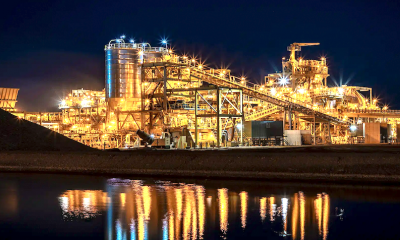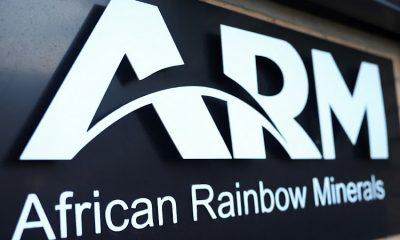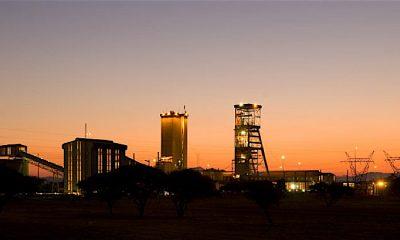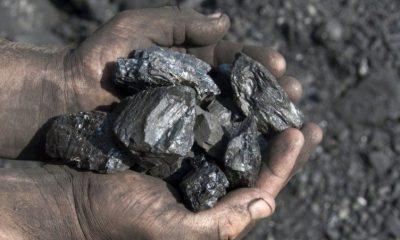411
Calls Mount for African Rainbow Minerals to Halt Coal Exports to Israel

Dozens of activists rallied outside the offices of African Rainbow Minerals (ARM) in Johannesburg on Thursday, calling on the mining company to halt coal exports to Israel. The protest, organized by the South African Boycott, Divestment and Sanctions (BDS) Coalition, comes amid growing scrutiny of South Africa’s energy trade links with Israel.
According to the BDS Coalition, two ships carrying South African coal are en route to Israel’s Port of Hadera, prompting renewed calls for an energy embargo. The vessels—Algoma Value and Schinousa—departed from Richards Bay in late February and early March respectively and are expected to dock in Israel in early April.
Protesters carried Palestinian flags and placards demanding accountability from ARM and other coal suppliers linked to the Richards Bay Coal Terminal (RBCT)—a major export hub owned by companies including ARM, Glencore, Exxaro, Anglo American, and South32.
Coal Exports to Israel Under Fire
Trade figures reveal that South Africa exported $79 million worth of coal briquettes to Israel in 2023, accounting for the largest share of the country’s $238 million total exports to Israel that year. Activists say this trade undermines South Africa’s diplomatic stance, as the country has taken Israel to the International Court of Justice (ICJ) over alleged genocide in Gaza.
“On the one hand you have the South African government taking Israel to the ICJ, and on the other hand you have South African mining companies fuelling the genocide by supplying coal,” said Roshan Dadoo, coordinator of the BDS Coalition.
ARM Responds to Protests
Addressing the demonstrators, ARM executive Imrhan Paruk read out a statement clarifying the company’s position. Paruk stated that ARM holds a 23% minority stake in Glencore’s coal operations in South Africa and is not directly involved in the marketing or sale of coal.
“ARM respects the democratic right of BDS and all organisations to protest. However, Glencore is responsible for the sales and distribution of the coal, not ARM,” he said.
The company reiterated its commitment to human rights and said it aims to work with people from all backgrounds, in line with the UN Universal Declaration of Human Rights.
But protesters were not satisfied with the response. Climate activist Sunny Morgan, from the Palestine Solidarity Alliance, accused mining companies of deliberately obscuring the destination of coal exports.
“They claim they don’t know where the coal ends up because it’s all lumped together. But the fact is, companies like Glencore and ARM supply the terminal and they own it. And we know that coal is going to Israel,” said Morgan.
He called on mining companies to issue transparent statements confirming or denying their involvement in coal shipments to Israel.
Ongoing Pressure and Global Solidarity
The protest formed part of a wider global campaign to halt the flow of energy resources sustaining Israel’s military activities in Gaza and the West Bank. Activists say the shipments contradict South Africa’s foreign policy and international legal efforts.
Demonstrators vowed to intensify pressure on coal exporters and the government to enforce a full energy embargo against Israel. As scrutiny grows, the spotlight is now on how much control companies like ARM actually have over their supply chains—and whether moral accountability can override market dynamics.
{Source GroundUp }
Follow Joburg ETC on Facebook, Twitter , TikTok and Instagram
For more News in Johannesburg, visit joburgetc.com



























